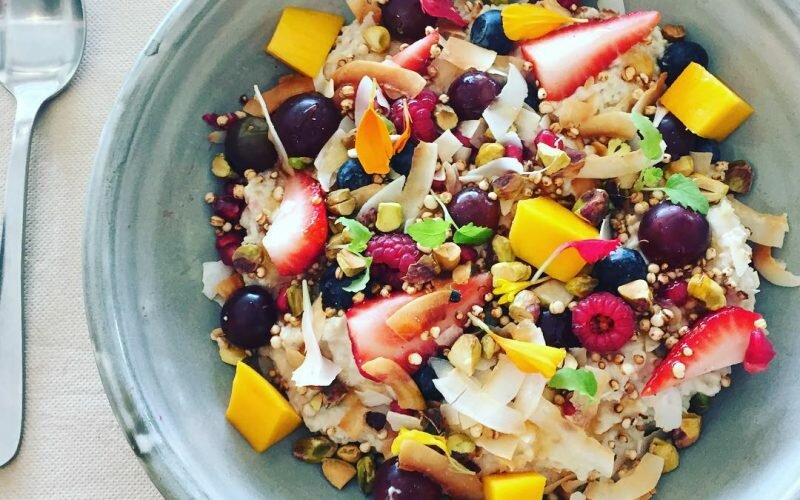Do you notice your skin breaks out before period? Have you ever wondered why you get sugar cravings or bloated before your period starts? Or perhaps you are more fatigued and suffering from mood swings. Don’t be alarmed, your hormones could be to blame and when they are out of balance, life too can feel the same.
Hormones are the chemical messengers secreted from our endocrine glands that travel via the bloodstream to every organ and tissue in our body, helping to regulate and maintain the delicate balance of life and homeostasis. Hormones control our mood, digestion, energy, libido, metabolism, fertility, aging and brain power.
Today, our modern lifestyle has created many challenges for our hormones to function optimally. A significant portion of our food has been altered and processed, causing a decrease in nutritional value and an increase in dietary and environmental toxicity. Our stress response is more sensitive to physical and emotional stress and many cleaning and beauty products contain hormone disrupting chemicals.
One of the simplest and easiest ways to improve our health and wellness is by changing both the way we eat and what we eat. Food plays an integral part in maintaining hormonal balance, in addition to regular exercise, adequate sleep, lifestyle choices, stress levels and genetics. If we don’t feed our body with the nutrients it needs, our body cannot produce hormones correctly because it doesn’t have the building blocks to do so. Though diet along cannot control hormones, it is one major factor in how our hormones function. The ancient idea that we are what we eat can either help you with hormonal production or cause unpredictable imbalances. The truth is, our body is designed to be in a natural state of wellness. If we are not feeding it correctly, we start to see a breakdown in our health and general wellbeing.
When imbalance arises due to nutritional deficiency we start to see impaired liver function, stress, hypothyroidism and a build up of xeno-oestrogens within the body. Symptoms can include anxiety, mood swings, weight gain, painful breasts, anxiety, cravings, depression, headaches, night sweats, migraines, bloating, acne, gut issues and more.
How can we eat our way to hormonal balance?
Food plays such an important role in our day-to-day lives that we forget it’s a natural medicine for our health and wellbeing. Hippocrates once famously said: “Let food be thy medicine and medicine be thy food.” Remember, the food you are eating provides your body with the building blocks to creating healthy hormones. Did you know that in Chinese medicine, some foods are better eaten at certain phases during your menstrual cycle. One of the best ways we can support ourselves hormonally is to eat according to the four phases within our menstrual cycle: Menstruation, Follicular, Ovulation and Luteal. Different hormones are triggered with each phase, and these cause the body to respond in different ways. Your emotions, skin, digestion, stress are all connected to your period cycle and the hormones made by your ovaries- estrogen and progesterone. No wonder you feel on the top of the world when your period has finished. Eat to nourish yourself and your body. Make this a lifestyle choice. It will be the best decision you have ever made!
Fats
Fat is a major source of energy and helps our body to absorb nutrients from the food we consume. Good fats help maintain healthy hormone function and help regulate the production of our sex hormones. Fats also help fight inflammation and facilitate ovulation, amongst other things.
The three essential fats that are crucial for healthy happy hormones they are Essential Fatty Acids (EFA) – Omega 3, Omega 6 and Omega 9. For fertility, we want to choose Omega 3 and Omega 6 fatty acids. EFAs are a vital component of every human cell. They balance hormones and support the opening of the follicle to release an egg.
What are the benefits of Omega 3 and Omega 6?
- Regulates hormones
- Fights inflammation
- Important for synthesis of prostaglandins (which regulate the menstrual cycle, ovulation and labour)
- Increases blood flow to the uterus
- Eases menstrual pain
- Supports optimal growth for fetus
- Increases egg white cervical mucus
- Helps to regulate your cycle
Protein
Protein is an essential building block when it comes to hormonal health. Protein is broken down into amino acids that are used for growth and repair. It is an essential building block.
Protein is vital for egg production, growth of our endometrial lining, sperm production and for making our hormones FSH and LH. You need an average size serving (equivalent to the palm of your hand) of protein-providing food two to three times a day.
- A primary protein (complete protein) which comes from an animal source and contains all essential amino acids; or,
- A combination of secondary proteins, which come from plant sources and need to be combined in order to provide a full range of amino acids, such as nuts, grains, seeds and legumes.
Carbohydrates
The balance of protein to carbohydrate foods should be approximately 1:1, although you can eat as many non-starchy vegetables as you like.
There are both good and bad carbohydrates. You should be eating plenty of ‘good’ complex carbohydrates, such as non-starchy vegetables and whole grains, while reducing your intake of ‘bad’ refined carbohydrates, such as sugar and white flour products (white bread and pasta).
‘Good carbs’ are complex in nature and are crucial to keeping our bodies and brains regulated. ‘Bad carbs’ can disrupt your hormone balance causing your blood sugar and insulin levels to spike. This can leach nutrients from your body stores and lead you to crave more of those foods.
Fermented foods
Naturally fermented foods are super nourishing and a great way to improve our gut function.
- Sauerkraut: Packed with billions of good bacteria that are easy to absorb, and is a great source of vitamin C.
- Kefir: This fermented milk drink cleans the intestines and has so much good bacteria that it creates a healthier digestive system.
- Bone broth: Rich in minerals that support the immune system, bone broth contains collagen and gelatin that literally heals your gut lining and reduces inflammation.
- Kimchi: A great source of probiotics, Kimchi is nutrient-dense and high-fiber, and does wonders for cleaning out waste and toxins while boosting your immune system.
- Kombucha tea: Kombucha helps bring the body back into balance by healing your gut and detoxifying the body.
Water – H20
Over 70 percent of the human body is composed of water. H20 it plays a key role in helping to transport hormones, develop follicles and maintain consistency and quantity in both cervical fluid and semen.
We recommend you consume at least six to eight glasses of water per day to help flush out any unwanted toxins and to keep your body hydrated.
Today we are more likely to obtain the benefits of the food we eat if we have good digestion, eat regularly, eat a range of nutritious foods, eat in a relaxed environment and choose foods from a variety of food groups. Diet, lifestyle, and stress all impact the balance of homeostasis. Through a healthy lifestyle, incorporating an appropriate diet, adequate exercise and managing our stress levels, we can balance our bodies and regulate our hormones to a create healthier, happier, you!
Article by Dr. Amanda Waaldyk
Dr. Amanda Waaldyk is the founder of Angea Acupuncture and Yoga (Angea). Amanda’s true passion is to help women achieve their dreams of conceiving a baby. As a mother of two Amanda has experienced the beautiful journey that is parenthood first hand and brings this personal understanding to her work. Amanda is there for women (and men) along every step of their journey to parenthood. From conception to pregnancy to birth and beyond, Amanda and her team of highly specialised Acupuncturist are there to help. Along with her work as an Acupuncturist and Chinese Medicine Doctor Amanda also teaches pre-natal yoga and offers in-person and online classes. Further supporting her love and passion for Chinese herbs Amanda has developed a range of organic, medicinal teas – Angea Wellness Teas. These hand blended organic teas are available in the Angea clinic and online.
To find out more about Amanda and the Angea mission head to angea.com.au or follow the journey on Instagram: @angea_acupuncture_yoga






